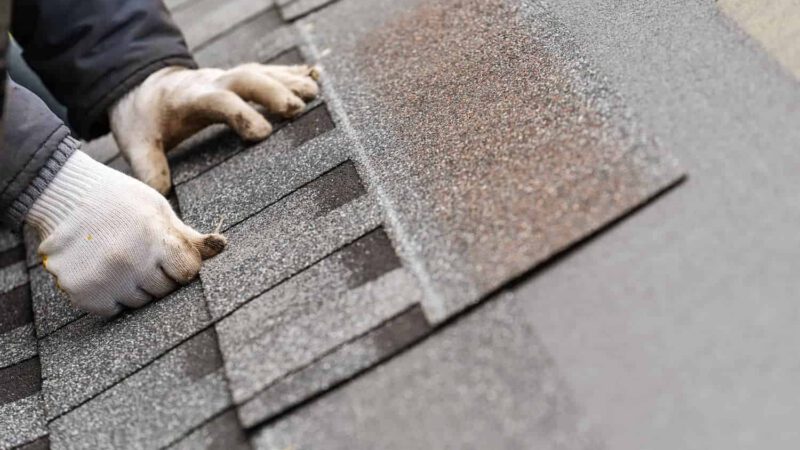Choosing a Roofing Expert

Roofing experts are professionals that have years of experience in the industry. Roofing Company is used to handling all the permitting and insurance requirements. They also conduct thorough inspections after the roofing is complete to ensure everything is done correctly. They are also able to handle different types of roofing materials.

When working with a roofing contractor, it is important to ensure they are properly insured in case of any accidents or damage. Ask for proof of their worker’s compensation and liability insurance before hiring them to work on your home or business. Responsible roofing contractors take safety seriously and will ensure they are covered if an accident occurs during the repair or installation process.
During the construction process, a reputable roofing expert will provide a detailed contract that clearly outlines the roles and responsibilities of all parties involved in the project. This will prevent misunderstandings and disputes that can arise during the course of the project.
A local roofing expert will be able to provide references from past clients in your area, which can help you verify their reputation. It is also a good idea to look for local reviews and complaints online to determine whether or not they have a solid track record.
If you notice that a roofing contractor is trying to avoid giving you a written estimate, it is probably best to move on to another option. This is a common tactic used by scammers who want to profit from your insurance claim without doing any of the actual work.
When choosing a roofing expert, it is important to consider their experience. It is important to find out how long they have been in business and whether or not roofing is their primary focus. It is also important to look at their online reviews and see what other people have had to say about them. You should also be sure that they are insured and have a good working relationship with their insurance company.
You should always ask for a written estimate before you work with a roofing expert. This will help you to avoid any scams and ensure that the contractor is providing you with a fair price for their services. In addition, a written contract will give you a clear idea of what to expect from the contractor in terms of their workmanship and products.
Another thing to keep in mind when selecting a roofing expert is to make sure that they have a strong reputation. You can check out their online reputation on sites like Google, Yelp, and Angie’s List to see if they have any positive or negative reviews. If you notice that they have a lot of negative feedback, this may be a red flag and it is best to avoid them.
If you have a dispute over a defective roof, then you can hire a roofing expert to provide an authoritative opinion. These experts can assess the cause of the problem, including the structural integrity of the materials, and how it could have been prevented. They can also testify in court about the condition of the roof and the cause of the damage. In some cases, a roofing expert can even serve as a consultant for the insurance company or the attorney representing the plaintiff.
A good roofing expert will offer a free estimate to their clients before beginning any work. This allows the client to get a clear idea of what needs to be done and how much it will cost. It can also help the client prioritize what is needed. For example, if the roof shingles are showing signs of age, it might be more important to have these replaced rather than having some shingles repaired.
Another service a roofing expert may provide is a roof inspection. This can be beneficial for homeowners who aren’t sure how long their current shingles will last or are considering selling their home. A roofing expert will inspect the shingle’s condition, including any leaks or other problems and will then discuss what options are available.
The roofing experts found on this page can consult on issues related to roof engineering, built-up roofing, single-ply roofing, skylights, tile roofs and wood shakes, among other topics. They can also serve as expert witnesses in deposition and trial. They can offer opinions and expert testimony on a wide range of roofing-related topics, such as roofing defects, roof systems, commercial insurance, business damages and property damage, among others. For additional information, please feel free to contact them directly.
When you’re working with a roofing expert, you should be comfortable asking questions. It’s important to understand the scope of the work to be done, what materials will be used, and how long the warranty will last. It’s also a good idea to ask how they deal with unexpected costs or if there are any hidden fees.
Ideally, a contractor should have no problem providing a copy of their state licensing information or proof of insurance. This is a good way to ensure you’re not dealing with a fly-by-night company that may steal your deposit or install substandard materials. In addition, a credible roofing expert will have no issue sharing their manufacturers and distributors because they want you to be able to trust the materials they use.
Another question to consider asking is how long the roofing company has been in business. This will be a good indicator of how reputable they are and whether or not their labor warranties will be honored. Unethical contractors that race to the bottom on price will often only stay in business for a short amount of time, meaning you’ll be left with no one to honor your roof’s warranty if something goes wrong.
Roofing contractors have extensive knowledge of all aspects of the re-roofing process and can manage a project to ensure that it is completed on time and within budget. They also know how to work with different types of materials and can use this knowledge to anticipate challenges that may arise during the job. They can also accurately estimate the cost of labor and materials, which is an important skill for any contractor.
Generally, roofing contractors do not require a state license to work, but some states do have specific requirements. For example, in New Mexico, a roofing contractor must obtain a Construction Contractor’s License, which requires two years of experience and passing both the trade exam and a business and law exam. Similarly, in Delaware, roofing contractors must register with the Division of Consumer Protection. In addition, anyone who works on asbestos abatement projects must obtain a class B Asbestos Abatement Contractor Certification from the Division of Facilities Management.
Whether you are a roofing contractor working for yourself or as part of a larger company, you need to find clients and book jobs. One way to do this is by getting qualified leads. Angi makes it easy for contractors to connect with potential clients by providing them with quality leads who are actively looking for a roofing service.
Roofing contractors are construction professionals that have the training and skills to perform a variety of tasks associated with roofing projects. Their services may include assessing roofs and providing clients with estimates of labor costs, equipment, and materials needed to complete the project. They may also be responsible for ensuring that all safety standards are followed during the project, and that all work is completed in accordance with building codes.
Many states require that roofing contractors be licensed in order to conduct their work. This is because the roofing industry is heavily regulated and has strict safety requirements. Licensing also helps to protect consumers from unscrupulous roofing contractors who may not be qualified or skilled in their work. The first step to becoming a licensed roofing contractor is to get proper training. This can be done through apprenticeships, entry-level employment jobs, or trade school programs.
Once a person has obtained the necessary training, they can apply for a roofing license in their state. The process for getting a license varies from state to state, and it is important that the applicant understands what their specific state’s requirements are. Depending on the state, applicants may be required to pass a trade exam and/or business and law exams.
In addition to obtaining a licensing, a roofing contractor must also have the necessary insurance coverages to operate their business. This includes liability insurance and worker’s compensation insurance. This is because workers can be injured on the job, and having the right insurance coverage can help protect them from financial losses.
A licensed roofing contractor can work on a variety of different types of roofs, including asphalt shingle roofs, metal roofs, tile roofs, and flat roofs. They can also repair and replace existing roofing structures, such as the roof deck, fascia boards, and flashings. They can also repair and install shingles, vents, gutters, downspouts, and siding.
Roofing contractors are also known for their excellent customer service and attention to detail. They are committed to meeting their client’s needs and helping them find the best solutions for their home improvement needs. They are also knowledgeable about local building and construction regulations, which can be a great asset for homeowners who are planning on doing a major renovation to their home.




